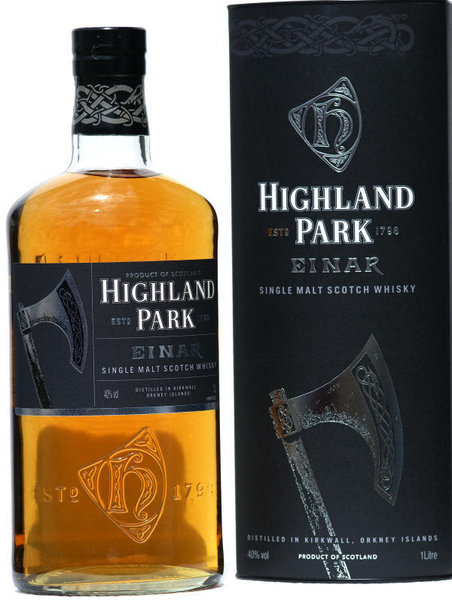|
|
Post by Diablo Rouge on Sept 17, 2016 21:19:55 GMT
 Best of the best. |
|
Deleted
Deleted Member
Posts: 0
|
Post by Deleted on Sept 17, 2016 21:38:15 GMT
Newest one I've tried is Dalwhinnie. Me like. You don't drink hey? |
|
Deleted
Deleted Member
Posts: 0
|
Post by Deleted on Sept 17, 2016 21:46:03 GMT
I'm a little bitch. Whisky is too much for me, especially if you're talking about drinking it straight. My limit for whisky is Southern Comfort & Lemonade!
I'm a cider drinker!
|
|
|
|
Post by Bestie on Sept 17, 2016 21:49:40 GMT
I'm a little bitch. Whisky is too much for me, especially if you're talking about drinking it straight. My limit for whisky is Southern Comfort & Lemonade! I'm a cider drinker! Southern Comfort is not whisky! |
|
|
|
Post by Stew on Sept 17, 2016 21:55:47 GMT
American and Irish makers tend to use Whiskey as the spelling. Scots use Whisky.
Perhaps people should drink more of it and render the spelling irrelevant.
|
|
|
|
Post by Stew on Sept 17, 2016 21:58:56 GMT
'The difference between whiskey and whisky is simple but important: whisky usually denotes Scotch whisky and Scotch-inspired liquors, and whiskey denotes the Irish and American liquors.
The word itself (both spellings) is of Celtic origin, and modern whisky/whiskey distillation practices originated in Ireland and Scotland. Using whiskey to refer to Scotch whisky can get you in trouble in Scotland.'
|
|
Deleted
Deleted Member
Posts: 0
|
Post by Deleted on Sept 17, 2016 22:00:26 GMT
I'm a little bitch. Whisky is too much for me, especially if you're talking about drinking it straight. My limit for whisky is Southern Comfort & Lemonade! I'm a cider drinker! Southern Comfort is not whisky! Proving my point right there!  |
|
Deleted
Deleted Member
Posts: 0
|
Post by Deleted on Sept 17, 2016 22:06:44 GMT
Newest one I've tried is Dalwhinnie. Me like. You don't drink hey? Its the blue label version. Alcohol free. |
|
|
|
Post by CaajScot on Sept 18, 2016 7:10:27 GMT
'The difference between whiskey and whisky is simple but important: whisky usually denotes Scotch whisky and Scotch-inspired liquors, and whiskey denotes the Irish and American liquors. The word itself (both spellings) is of Celtic origin, and modern whisky/whiskey distillation practices originated in Ireland and Scotland. Using whiskey to refer to Scotch whisky can get you in trouble in Scotland.' |
|
|
|
Post by CaajScot on Sept 18, 2016 8:27:15 GMT
Just going to get it out of the way. While in college, I worked at a pretty nice liquor store, where I learned the bulk of what I know about booze. I was always told that the spelling of whisk(e)y was dependent on where it was distilled. You spell it whisky if its Scottish, Bourbon and Irish distillates are whiskey and Canada just sort of does what ever they feel like with their rye. Every possibility I am wrong on this, that is just what I was always told.
The spelling whiskey is common in Ireland and the United States while whisky is used in every other whisky producing country in the world. In the US, the usage has not always been consistent. From the late eighteenth century to the mid twentieth century, American writers used both spellings interchangeably until the introduction of newspaper style guides. Since the 1960s, American writers have increasingly used whiskey as the accepted spelling for aged grain spirits made in the US and whisky for aged grain spirits made outside the US. However, some prominent American brands, such as George Dickel, Maker's Mark, and Old Forester (all made by different companies), use the 'whisky' spelling on their labels, and the Standards of Identity for Distilled Spirits, the legal regulations for spirit in the US, also use the 'whisky' spelling throughout.
"Scotch" is the internationally recognized term for "Scotch whisky".en.wikipedia.org/wiki/Whisky |
|
|
|
Post by redcase on Sept 18, 2016 9:57:07 GMT
'The difference between whiskey and whisky is simple but important: whisky usually denotes Scotch whisky and Scotch-inspired liquors, and whiskey denotes the Irish and American liquors. The word itself (both spellings) is of Celtic origin, and modern whisky/whiskey distillation practices originated in Ireland and Scotland. Using whiskey to refer to Scotch whisky can get you in trouble in Scotland.'I love this episode. |
|
|
|
Post by RAZ on Nov 23, 2016 17:11:06 GMT
got myself a bottle of  at the duty free. always wanted to try the 30 or 40 year old highland park but they are quite pricey so i`ll have to wait a bit. decided to try one of the warrior series (non aged). there were so many good whiskys there but i got most of them already at home or knew them so i bought this one. just opened the bottle, have to say that its not as bad as i expected. pretty good actually |
|
|
|
Post by king nothing on Nov 23, 2016 19:55:48 GMT
  how`s the single barrel? The single barrel is a fine drink. |
|
|
|
Post by RAZ on Nov 24, 2016 15:46:14 GMT
  how`s the single barrel? The single barrel is a fine drink. never been a fan of jack daniels. but the single barrel i definately want to try. |
|
|
|
Post by DiegoRed on Nov 25, 2016 4:35:18 GMT
Been drinking a lot of Bulleit lately. Solid bourbon, not usually a fan of American whiskey, but I got a handle and it could be much worse.
|
|